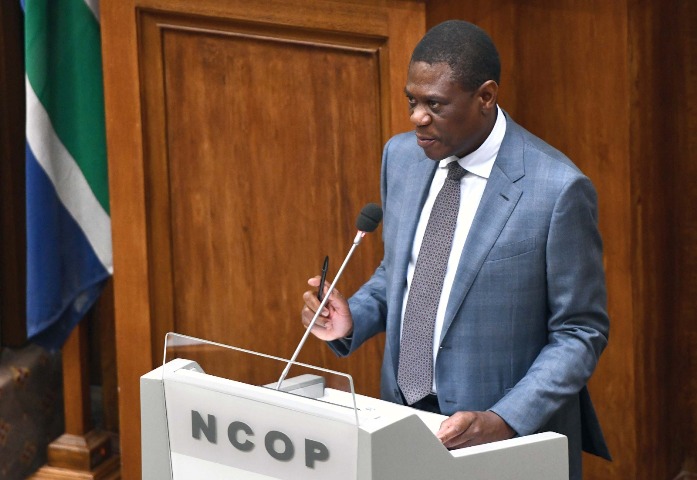Deputy President Paul Mashatile has called for adherence to official protocols following claims of a settlement between the government and the trade union Solidarity regarding disputed sections of the Basic Education Laws Amendment (BELA) Act. The settlement was reportedly announced during discussions at the National Economic Development and Labour Council (Nedlac).
The BELA Act, signed into law by President Cyril Ramaphosa in September 2024, introduced reforms concerning school admissions and language policies. However, implementation of clauses 4 and 5 was delayed by three months to allow further deliberation after facing opposition from Solidarity, Afriforum, and other societal groups.
Solidarity announced the resolution of its dispute with the government on Wednesday, citing sections of the Act as the basis for their objections. Yet, the Deputy President’s Office revealed it became aware of this development informally, raising concerns about a parallel process conducted outside the official Government of National Unity (GNU) Clearing House Mechanism.
Deputy President's Response
In a formal statement, the Deputy President clarified that the BELA Act remains subject to deliberation under the GNU Clearing House Mechanism, which was established to address policy disagreements among the ten GNU member parties.
“The process referred to in Solidarity’s statement appears to have bypassed the sanctioned GNU processes,” said Mashatile. He underscored the necessity of upholding integrity and coordination among GNU signatories to ensure collective decision-making.
The Deputy President assured the public that an amicable resolution would be pursued through the established channels, emphasizing that the BELA Act remains a legislative product of Parliament and the President, and no intervention could diminish their authority.
GNU Mechanism’s Role and Task Force Initiatives
The GNU Clearing House Mechanism, chaired by Mashatile, is tasked with harmonizing policy disputes. Recently, it convened a task team to address concerns raised about the BELA Act, particularly around clauses dealing with language diversity and school admissions.
The mechanism aims to foster constructive dialogue and ensure that policy decisions reflect broader societal consensus. Mashatile emphasized that all parties must respect these processes to preserve public trust and institutional integrity.
Key Concerns Raised
- Parallel Process: Reports suggest that the Education Minister and other government officials may have engaged in discussions with Solidarity outside the official GNU Clearing House framework.
- Public Trust in Governance: The Deputy President stressed the importance of transparency and consistency in addressing policy disputes to maintain public confidence.
- Importance of Parliamentary Oversight: Mashatile reiterated that the BELA Act’s enactment is fundamentally tied to Parliament’s legislative authority and the President’s constitutional mandate.
Next Steps
The Deputy President has pledged to work collaboratively with GNU parties to manage the situation and finalize an inclusive resolution. Mashatile also called on all stakeholders to uphold the spirit of the Statement of Intent, ensuring that all disputes are resolved within the framework of established protocols.
This incident underscores the complexities of policymaking in a coalition government and highlights the importance of coordinated efforts in resolving contentious issues like the BELA Act. The Deputy President’s intervention seeks to reaffirm trust in the mechanisms designed to uphold good governance and accountability.











